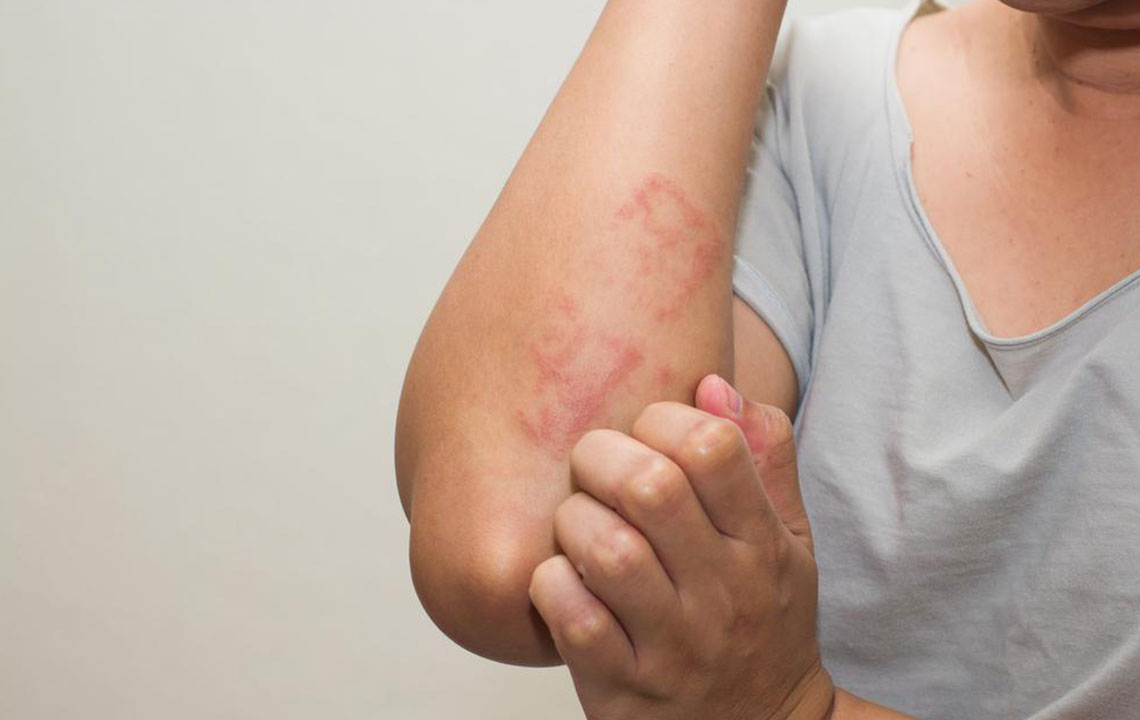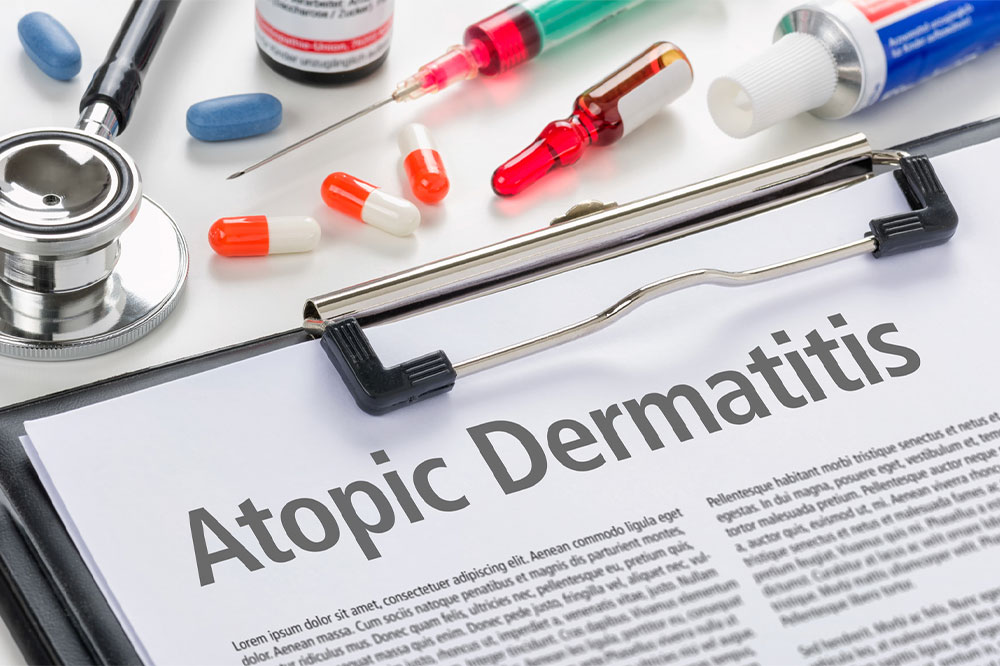Comprehensive Guide to Effectively Managing Eczema Symptoms and Achieving Skin Comfort
This comprehensive guide offers effective strategies for managing eczema symptoms, emphasizing both medical treatments and holistic approaches. It explores ways to repair skin barriers, avoid triggers, and improve overall health through diet, lifestyle changes, and stress management. Suitable for those seeking long-term relief from eczema, this article provides actionable advice to enhance skin health and quality of life.

Comprehensive Strategies for Managing Eczema Symptoms and Improving Skin Health
Eczema, also known as dermatitis, is a complex group of skin conditions characterized by chronic inflammation, dryness, and heightened skin sensitivity. It affects millions worldwide and can significantly impair quality of life. Understanding the various types of eczema, their underlying causes, and effective management strategies is essential for those affected. The most common forms are Atopic Eczema and Contact Eczema, each with unique triggers and treatment protocols. This comprehensive guide provides detailed insights into managing these skin conditions through medical, lifestyle, and holistic approaches to promote healthier, more comfortable skin.
Understanding Eczema and Its Types
Eczema is an umbrella term for a variety of inflammatory skin conditions that lead to irritated, itchy, and inflamed skin. It manifests in different forms, predominantly Atopic Eczema and Contact Eczema. Atopic Eczema, also known as atopic dermatitis, is a chronic condition often associated with allergies and asthma. It commonly begins in childhood but can affect adults as well. Contact Eczema, on the other hand, results from direct skin exposure to irritants or allergens, causing localized inflammation. Both types require tailored management strategies, focusing on symptom control, trigger avoidance, and skin health restoration.
Challenges Without Proper Management
Failing to manage eczema effectively can lead to persistent discomfort, skin thickening, increased susceptibility to infections, and a diminished quality of life. When the skin barrier is compromised, it allows allergens and irritants to penetrate more easily, triggering immune responses that exacerbate inflammation. This cycle often results in persistent itching, pain, and skin damage. Therefore, a proactive approach combining medical treatments and lifestyle modifications is vital for controlling symptoms and preventing flare-ups.
Core Principles of Eczema Treatment
Effective eczema management revolves around repairing and maintaining the integrity of the skin barrier, reducing inflammation, and avoiding known triggers. This entails a combination of medications, skincare routines, and lifestyle adjustments tailored to individual needs. It’s important to recognize that while current treatments focus on symptom relief and preventing flare-ups, there is no definitive cure, making ongoing management essential.
Medical Treatments for Eczema
Medications form the cornerstone of eczema treatment. Topical corticosteroids are commonly prescribed to manage acute inflammation and control flare-ups. These creams come in varying potencies, and their use should be guided by a healthcare professional to prevent side effects. For severe cases, physicians may recommend oral corticosteroids to rapidly reduce symptoms, though these are typically limited to short-term use due to potential side effects.
Beyond corticosteroids, other therapies are under active research and include antihistamines to control itching, phototherapy involving controlled UV light exposure, and specialized dressings that modulate immune responses. Dietary supplements and biologic agents are also being explored as future options for more targeted therapy.
Managing Contact Eczema by Trigger Avoidance
In contact eczema, identifying and avoiding specific irritants or allergens is crucial. Skin testing through allergy assessments can pinpoint triggers such as certain metals, fragrances, preservatives, or chemicals found in everyday products. Once identified, strict avoidance of these substances can significantly reduce flare-ups. Using gentle, fragrance-free cleansers, moisturizers, and clothing made from natural fibers like cotton or silk can support healing. Proper skin care, including avoiding harsh soaps, frequent gentle cleansing, and patting the skin dry, helps maintain moisture levels and reduce irritation.
Additional tips include soaking in soothing oatmeal baths, avoiding hot water exposure, and choosing skin-friendly laundry detergents. These measures contribute to minimizing skin irritation and promoting overall skin health.
Holistic and Lifestyle Approaches to Eczema Management
Recognizing that eczema often reflects internal imbalances, comprehensive management includes dietary and lifestyle modifications aimed at reducing systemic inflammation. Eating a diet rich in whole, minimally processed foods provides essential nutrients that support skin repair and immune health. Emphasizing fresh fruits, vegetables, lean proteins, and healthy fats helps reduce inflammatory responses inside the body.
Supporting Gut Health for Better Eczema Control
Since a significant portion of the immune system resides in the gut, maintaining a healthy digestive tract is paramount. Consuming probiotic-rich foods such as yogurt, kefir, kimchi, sauerkraut, miso, and tempeh can help balance gut bacteria, which in turn modulates immune responses and reduces skin inflammation. Pregnant women and mothers who consume probiotics during pregnancy are more likely to lower their infants' risk of developing eczema, emphasizing the importance of healthy gut flora from early stages.
Stress Reduction and Mind-Body Techniques
Chronic stress is a known trigger for eczema flare-ups. Incorporating stress management practices such as mindfulness meditation, yoga, deep breathing exercises, and adequate sleep can significantly reduce outbreaks. These holistic strategies complement medical treatments and promote overall well-being.
Long-term Skin Health and Prevention
Maintaining healthy skin involves consistent skincare routines, avoiding known irritants, and adhering to treatment plans. Regularly moisturizing with fragrance-free, emollient creams helps reinforce the skin barrier. Wearing protective clothing during exposure to harsh environmental conditions or chemicals is advisable. Lifestyle choices such as avoiding smoking and limiting alcohol consumption further support skin health and immune function.
Summary: Integrating Medical and Holistic Approaches
Successful eczema management depends on a holistic, individualized approach that combines medical treatments, skin care routines, trigger avoidance, and lifestyle modifications. Emphasizing internal health, proper diet, and stress management not only alleviates symptoms but also promotes long-term skin health. While challenges remain due to the chronic nature of eczema, adopting these comprehensive strategies empowers individuals to regain control and enjoy healthier, more comfortable skin.





